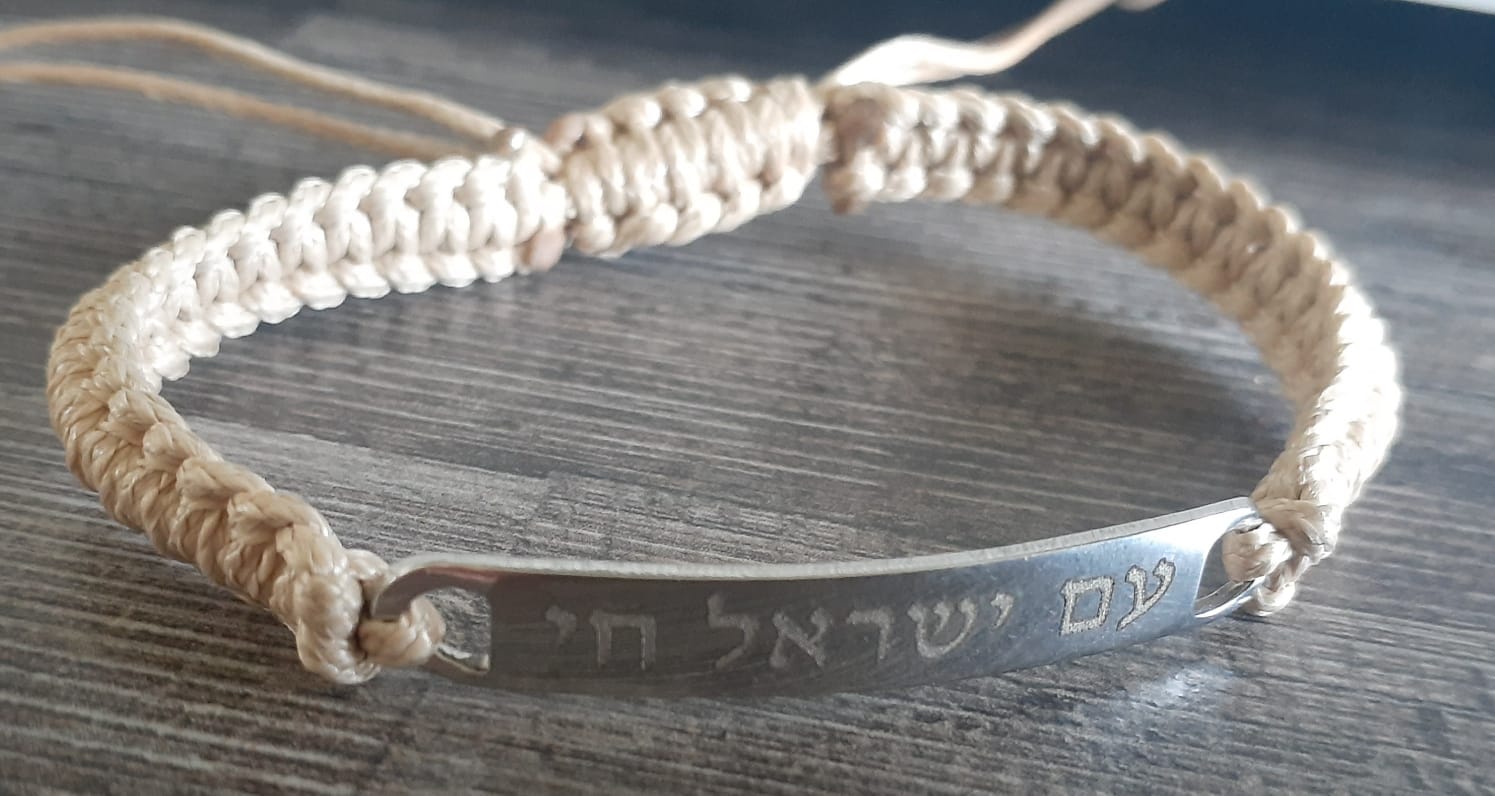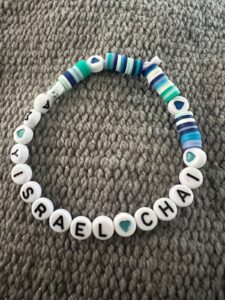
Featured Item

Heart on sleeve – why Jewish jewellery is everywhere
With the proliferation of jewellery featuring Jewish symbols, Hebrew slogans, and the words “Bring Them Home” in reference to the hostages, it’s clear that fashion accessories have become an important way of expressing Jewish pride and solidarity with Israel. Though some may fear visibly identifying as Jewish amidst a global uptick in antisemitism, many South African community members are embracing the trend.
“I felt strongly even before 7 October about never hiding my identity,” says former business owner Stacey Kirshenbaum. “Years ago, when I lived in the United Kingdom [UK], I was offered advice by a lady in a supermarket to hide my Magen David. She whispered to me that she was also Jewish.” Her well-meaning advice had the opposite effect. “I then wore it 24/7, and knew I would never, ever hide the fact that I’m Jewish.”
Though Jews in South Africa and abroad have undoubtedly received similar advice, especially since the 7 October massacre, many more are wearing Jewish jewellery. “I’m wearing more now since 7 October, I have a heart necklace and bracelet from an Israeli designer that has a Magen David cut out in the middle,” says Kirshenbaum.
“I’ve seen so many young people say on Instagram that before 7 October, they never acknowledged being Jewish. Now they have almost ‘woken up’, and are wearing everything they can find, including getting tattoos.”
Though she acknowledges that we may feel a false sense of security in South Africa, Kirshenbaum says she’s never felt as unsafe in Johannesburg as she did in London, where she was visiting her children when the war in Israel began. “I witnessed cars with Muslim women hanging out the windows screaming ‘Death to Jews!’, ‘Free Gaza!’ and waving flags.
“I was alone that day in a very busy tourist area, and I was shocked. I had never felt that way before, and quickly returned to my son’s home. I also hate the fact I’m relieved that my kids aren’t wearing any Jewish jewellery in the UK, especially my son in North London.”
Nonetheless, the demand for Magen David jewellery increased by a reported 400% in the UK and United States in the month following the Hamas incursion. Though such statistics aren’t available locally, our community appears to be following suit.
Johannesburg-based teacher Pamela Kantor says that while she and her family have always proudly worn Jewish and Israeli jewellery as a sign of their heritage, they’re doing so even more since 7 October. Kantor’s son Reuven is even making and selling bracelets stating “Am Yisrael Chai” and “Bring Them Home Now” at his school.

“I’ve always worn a Magen David necklace and Shema bracelet and ring, but now, I wear even more,” Kantor says. “I just can’t stop buying things. The jewellery makes me feel connected to family and friends in Israel who are so far away. The pieces bring me a type of comfort and strength, and make me feel safer.”
Kantor says she and her family have no reservations about wearing the jewellery. “We’re proud to be Jewish, we love our religion, we love our community and Israel, and we won’t shy away from being who we are and who we were born to be.”
Lara Baskin, who sells personalised engraved accessories says her clients have always loved getting their names engraved in Hebrew as it’s part of their identity. “After 7 October, a client asked me to engrave ‘Am Yisrael Chai’ on a bracelet and I advertised that I could do it,” says Baskin.
“Before I knew it, I was busy with orders for these bracelets. I didn’t decide to design so many, it just happened. I also incidentally had a few blank heart necklaces and thought it would be an elegant way of showing “My heart is with Israel”, which I engraved on them alongside an Israeli map. A lot of my clients told me these products made them feel connected to Israel. Jewellery is a beautiful way of showing the world that we won’t hide away, but be proud to be Jews.”
Kara Stoler, the co-founder of luxury jewellery brand Emme & Opal, also understands the power of jewellery when it comes to expressing Jewish identity. It resonates with the brand’s tagline: “Your jewellery introduces you before you speak.” The brand’s Mazel Collective was born out of a desire to identify, celebrate, give hope, and contribute to the community, with a portion of proceeds donated to the Community Security Organisation (CSO) in honour of its dedication.

Including rings, earrings, charms, necklaces, and bracelets, with symbols including chais and Magen Davids, the range symbolises hope and continuity. Yet it also includes more subtle designs that display unity including the Ahava pendant inspired by the Jerusalem sculpture. “Another is our unity Magen David charm, a more abstract portrayal of a Magen David surrounded by hearts,” Stoler says. “The designs allow our clients to feel pride in expressing themselves in their own way.”
Kirshenbaum says that when she returned from the UK to South Africa in November, she noticed a larger amount of people wearing more jewellery, T-shirts, bags, and caps from Israel. “Our community has grown stronger and prouder,” she says.
That’s why she was upset to learn that friends from Israel were advised to leave such symbols at home when visiting their kids in South Africa. The Israeli government gave a precautionary warning to travellers to avoid openly displaying signs of their Israeli identity, especially in countries like South Africa which it says poses a moderate threat to Israelis. “I told my friends that everyone here is wearing their Jewish jewellery, but they felt vulnerable, especially in light of how South Africa has behaved towards Israel,” says Kirshenbaum.
Shira Revach Gewer, an Israeli living in South Africa, is also cautious. “About a month ago, for the first time since I came to South Africa, I told my kids to change out of the Israeli soccer outfits they were wearing and wear Liverpool ones instead as we were going to a dam and my hubby wasn’t with us.”
Jevon Greenblatt, the director of operations at the CSO, however, reiterates the group’s message about the safety of wearing Jewish symbols in South Africa. “The CSO has never requested that our community hide our Jewish identity, and we don’t believe that it’s necessary at this stage,” he says.
“Wearing a Magen David necklace, your kippah, or showing your tzitzit is absolutely ok. While specific situations may require a change in such behaviour, something the CSO will communicate if deemed necessary, it advises community members to go about [their] daily lives, with vigilance, but without fear or apology.”










